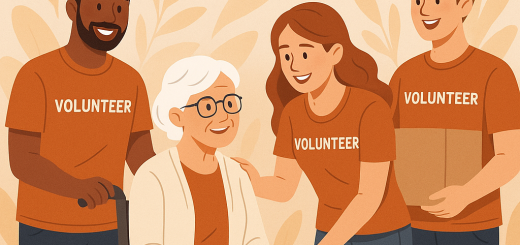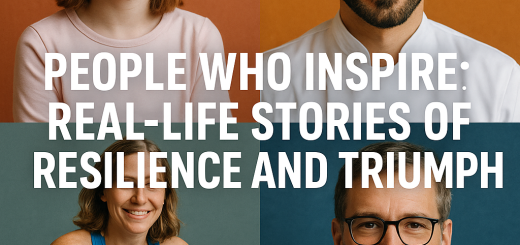How People Adapt to Change: Lessons from Global Shifts and Personal Journeys
Change is the one thing we can all count on in life. Whether it’s a global event like a pandemic, a career change, a move to a new country, or the end of a relationship, change comes in many forms. Sometimes it’s planned. Often, it arrives uninvited and unexpected. The question isn’t whether change will come — it’s how we respond to it that defines us.
On our official platform, we aim to not only share facts and updates but also highlight human stories that offer valuable lessons. In this article, we explore how people around the world adapt to change, from sweeping global shifts to deeply personal transitions.
Learning from the Global Pandemic
When COVID-19 spread across the globe, lives changed overnight. Schools shut down, businesses closed, and travel stopped. For many, the isolation, uncertainty, and economic stress were overwhelming. But in the middle of this chaos, people adapted.
Teachers turned to online platforms to keep classes going. Local shops built websites and started delivery services. Musicians gave virtual concerts, and families began spending more time together. Remote work became a norm. Many discovered new hobbies, learned digital tools, or even started small businesses from home.
The pandemic taught us that even in times of crisis, humans are incredibly resourceful. Flexibility, creativity, and community support became key survival skills.
Moving Across Borders
Millions of people each year relocate to new countries — sometimes for better opportunities, other times to escape conflict or natural disasters. Moving is never easy. It often means leaving behind family, language, traditions, and a familiar way of life.
Yet, these journeys also show the power of adaptation. Newcomers learn local languages, build new networks, and find ways to belong. Cultural exchange becomes a two-way process, enriching both sides. Many immigrants and refugees go on to make significant contributions in their new communities, bringing fresh perspectives and resilience built through experience.
Their stories remind us that identity is not fixed — it evolves as we grow and face new realities.
Career Shifts and Reinvention
Losing a job or switching careers can be deeply unsettling. But for many, it becomes the beginning of a more fulfilling chapter.
Take Sarah, a corporate manager who was laid off during an economic downturn. After months of job searching, she decided to follow her lifelong passion for cooking. She enrolled in culinary school, started a small catering service, and eventually opened her own café. It wasn’t easy — there were financial risks and self-doubt — but adapting to this change brought her happiness she never felt in the corporate world.
Career reinvention is a growing trend, especially in a fast-changing job market. The ability to learn new skills, stay open to possibilities, and step outside your comfort zone is now more important than ever.
Personal Transformation After Loss
Personal change often follows a major life event — the loss of a loved one, a health crisis, or a breakup. These experiences shake us to the core. But they can also lead to deep growth.
After surviving a heart attack, Tom, a 52-year-old father of three, radically changed his lifestyle. He quit smoking, started walking daily, and adopted a healthier diet. He also began mentoring others who faced similar health issues, turning his scare into a source of strength for others.
Emotional adaptation takes time. It involves grief, reflection, and the courage to imagine life differently. But countless people show that healing is possible — and that change, even painful change, can be transformative.
What Helps Us Adapt?
Across all these examples, several key traits support successful adaptation:
- Mindset: Seeing change as a challenge rather than a threat helps people stay positive and proactive.
- Support Systems: Family, friends, and community connections make a huge difference.
- Willingness to Learn: Embracing new knowledge and skills allows for smoother transitions.
- Self-Care: Managing stress and staying mentally and physically healthy builds resilience.
Change is rarely easy, but it doesn’t have to break us. With the right tools and mindset, it can become a path to discovery and growth.
Final Thoughts
From global disruptions to personal milestones, change touches us all. The real question is how we face it. Will we resist and remain stuck in fear, or will we adapt and move forward?
The stories shared here prove one thing: human beings are incredibly capable of transformation. Whether through innovation, courage, or compassion, people find ways to thrive — often becoming stronger and wiser in the process.
At our website, we’re committed to sharing these meaningful stories and lessons. Because in times of change, we all need examples of hope, strength, and progress to remind us what’s possible.

